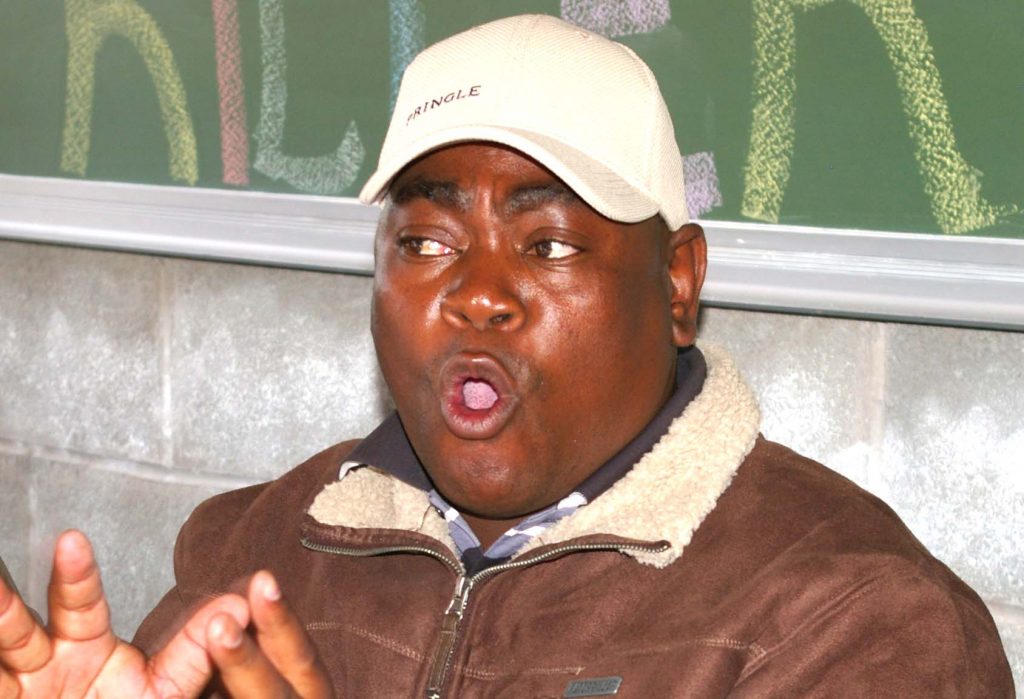
Pascalinah Kabi
PROMINENT famo musician, Mosotho Chakela, who is also the Terene gang leader, says the recent killings of 14 illegal Basotho miners in Benoni, South Africa had nothing to do with famo gang wars.
This follows strong suspicions that the 14 Basotho nationals were massacred in an escalation of the long standing feuds among rival famo gang members which had spilled into the neighbouring country.
The first six bodies, with gunshot wounds, were found on 5 March 2017 while another eight were found on the next day near Benoni.
All 14 illegal miners or zama zamas — as they are colloquially known in South Africa — were from Mafeteng villages, nine of them from Leraleng, two from Tšoeneng, Liqoabing (one), Ha Mokhalinyane (one) and Ha Rahlao (one).
The bodies were repatriated last week and the same time, South African police announced the arrest of four suspects, also from Lesotho.
Allegations have since surfaced that the killings were as a result of famo gang wars which have ravaged the country over the years.
Two Mafeteng-based famo gangs nicknamed Terene and Seakhi have been fighting a bloody war over bragging rights with their feud having political undertones.
The rivals are identified by the colour of their blankets — yellow and black for Terene and maroon and black for Seakhi.
“The zama-zama killings involving Basotho shouldn’t be taken for what they seem to be on the surface. Dig deeper and you will discover that the killings are famo associated,” said a source who requested anonymity. The source alleged that the zama-zama killings involving Basotho only were as a result of famo fighting “as most of these zama-zama miners are criminals running away from the wrath of law in Lesotho.”
The source added: “So when they get to South Africa, they don’t see each other as Basotho but as rivals from different famo gangs and each of the gangs quickly hatches a plan to kill the other gang’s members.”
However, Mr Chakela this week refuted the allegations, saying that none of the deceased belonged to his gang.
“None of our members was killed recently and none of the 14 deceased belonged to any gang, especially Terene or Seakhi,” Mr Chakela said in an interview with the Lesotho Times.
“These killings had nothing to do with famo. Just because these people are from Mafeteng doesn’t mean the source of their killing was famo.”
Mr Chakela said the deceased could have been victims of a zama-zama turf fight.
Meanwhile, Mr Chakela pleaded with local politicians to work closely with famo gang leaders to come up with a practical strategy to end the wars.
“We are tired of fighting and we want to live peacefully as Basotho. We have failed to end the war by ourselves and although past governments’ plans to end this war failed, I strongly believe that political leaders have a role in ending this war.”
He said the famo and zama-zama killings were not only affecting relatives but the entire country with innocent people being caught in the crossfire.
In 2015, two Sehlabeng-sa-Thuoathe teenagers died instantly along with famo artists Lepelesana and Botlenyana after they were caught up in a Sea-Point shooting.
Attempts to get a comment from Seakhi leader Bereng Majoro, popularly known as Lekase, were not successful as he was unreachable on mobile phone.

